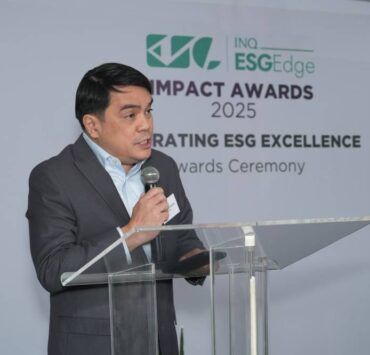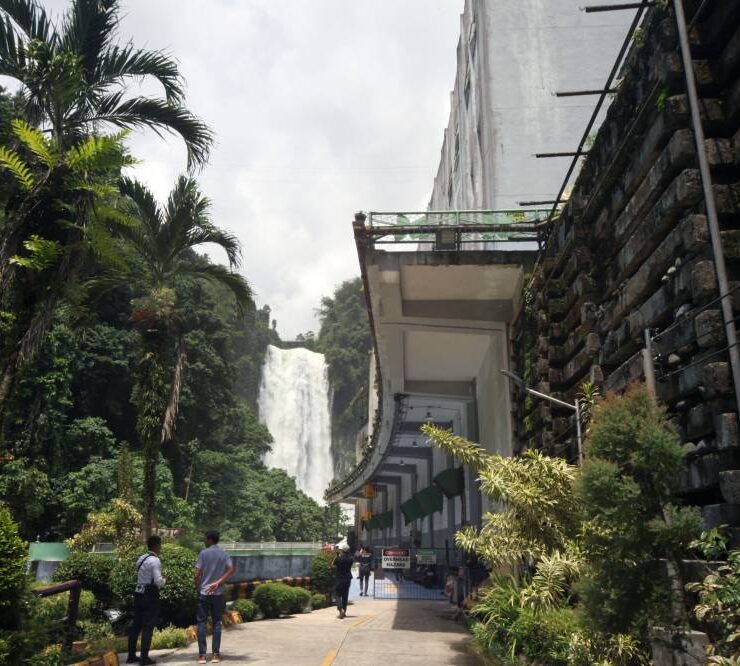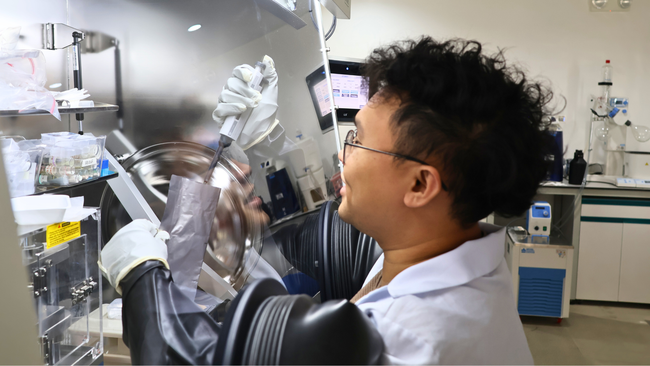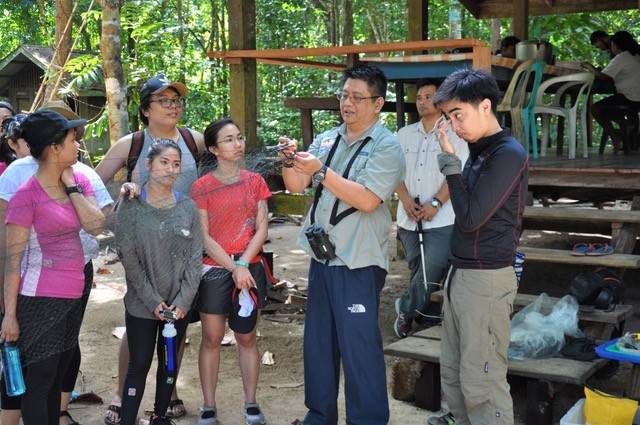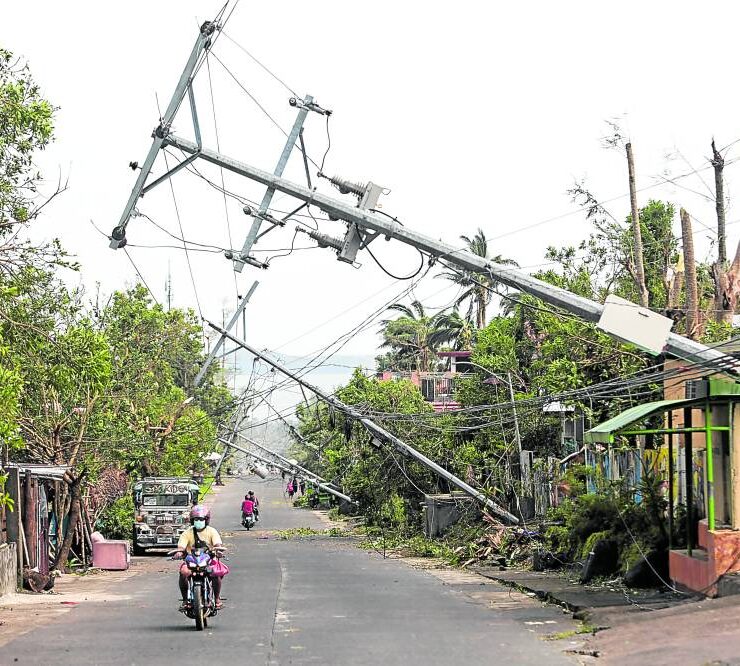ACEN Corporation: From lahar to light
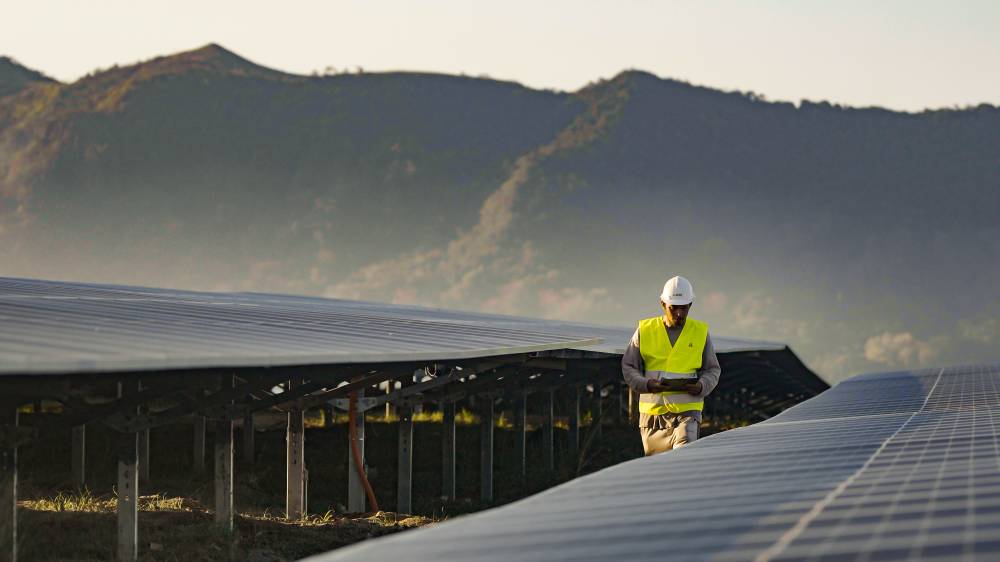
A vast stretch of land in Zambales, once buried under lahar from Mount Pinatubo’s 1991 eruption, has found new life as the site of the country’s largest solar farm—transforming a disaster-scarred landscape into a hub for clean energy and community development.
The 585-megawatt SanMar Solar project in San Marcelino, developed by ACEN Corp., earned the Gold Award for Social Initiatives under the “Relations with Local Communities” category for publicly listed and large companies at the inaugural Inquirer ESG Edge Impact Awards 2025, held at the Inquirer Media Resource Plaza in Makati City.
ACEN was also named the Grand Prize winner for Most Outstanding ESG Initiative among publicly listed companies. All Gold awardees—except those in the Water Management and Governance categories—will go on to represent the Philippines at the Asia ESG Positive Impact Awards 2025 in Kuala Lumpur, Malaysia, on Nov. 6.
Irene Maranan, ACEN’s head of sustainability and communications, said the company began its ESG journey in 2019 after it became a publicly listed firm—a move that came with greater scrutiny from investors seeking transparency on climate and social risks.
“Investors wanted to see how companies like ours manage ESG risks and opportunities,” Maranan explained. “That pushed us to integrate these considerations into our operations and reporting so we could create long-term value while addressing environmental and social concerns.”
Since then, ACEN has undergone a significant transformation. Once dependent on thermal power, including coal, the company has now transitioned to 100-percent renewable energy. Today, it boasts 7 gigawatts of attributable capacity, making it one of the leaders in the country’s clean energy transition.
Green jobs
The choice of location for the SanMar Solar project was deliberate. The site covers around 500 hectares of lahar-coated terrain that had lain idle for decades, unsuitable for farming or housing after the Mount Pinatubo eruption.
“We thought, why not turn this unused land into something productive that can benefit the province?” Maranan said.
This decision not only avoided the displacement of existing communities but also paved the way for job creation. At peak construction, SanMar Solar generated over 3,600 green jobs, with 80 percent of the workforce hired from Barangays Santa Fe, San Rafael, and Aglao in San Marcelino, according to ACEN.
Beyond employment, the project unlocked long-term benefits for the area. ACEN constructed more than 6 kilometers of access roads, two bridges, and 14 km of transmission lines, significantly improving connectivity for remote indigenous communities who had long faced difficulties reaching schools, hospitals, and markets. These new routes cut travel time and expanded economic opportunities for residents.
The company also supported the creation and confirmation of the San Marcelino Indigenous Political Structure/Organization (IPS/IPO) with a P2-million donation. Part of this initiative involved providing mobile phones for geotagging indigenous families via the KOBO Tool app, enabling better analysis of demographic data and needs.
Not an afterthought
Maranan noted that ACEN’s ESG governance structure ensures that sustainability considerations are deeply embedded in decision-making. A board-level sustainability committee reviews progress at least twice a year, while an executive-level ESG committee oversees implementation across business units.
“ESG isn’t something we treat as an afterthought,” she said. “It’s integrated into the way we do business—from risk management to operations to stakeholder engagement.”
The company also aligns its disclosures with global ESG frameworks such as MSCI and Sustainalytics, meeting the standards investors use to assess corporate risk and sustainability performance.
For ACEN, winning the grand award at the first Inquirer ESG Edge Impact Awards was both a recognition of its efforts in Zambales and an opportunity to highlight how renewable energy projects can deliver broader social benefits.
“We’re very proud to represent the Philippines as we now compete with companies from other countries. It’s a privilege to carry the Philippine flag on a global stage,” Maranan said.
Thriving together
ACEN’s community engagement extends beyond project construction. In the aftermath of Typhoon “Carina” in 2024, which struck several parts of Luzon—including Barangay Santa Fe, home to SanMar Solar—ACEN distributed 500 food packs, 180 liters of fuel, and essential supplies to affected families, providing much-needed relief at a critical time.
“For us, it’s not just about finishing a project. It’s about uplifting lives and making sure we thrive together with the communities we work with,” Maranan said.
Once fully operational, the SanMar Solar project is expected to avoid more than 360,000 metric tons of carbon emissions annually and provide electricity to over 120,000 homes, according to company projections as of December 2024.
Maranan said the experience in Zambales will serve as a blueprint for future projects as ACEN expands its renewable energy portfolio nationwide.
“We’ve seen firsthand how energy development can go hand in hand with social impact,” she said. “That’s the model we want to continue—clean energy that uplifts communities along the way.”















